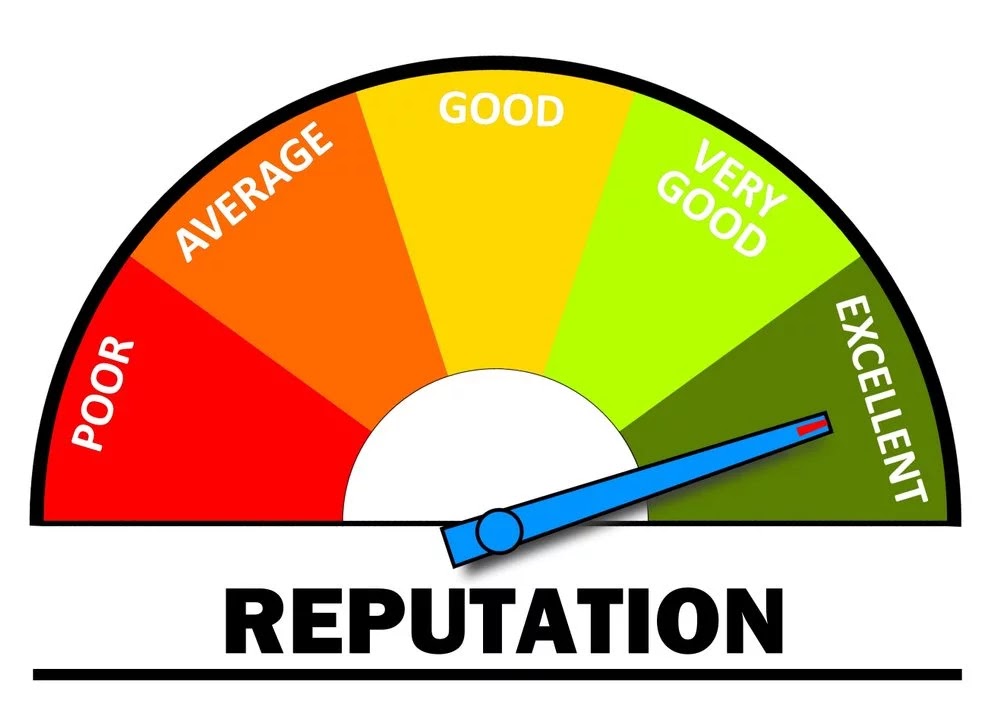What Are the Best Practices for Lawyers’ Online Reputation?
Understanding the Importance of Online Reputation
For lawyers, a positive online reputation is crucial. It impacts how clients perceive them even before the first meeting. A good reputation not only attracts more clients but also establishes a lawyer as trustworthy and competent. Studies show that approximately 85% of potential clients use online reviews to evaluate lawyers before deciding to hire them. This highlights the need for lawyers to manage their online presence carefully.
Building a Foundation
The foundation of a strong online reputation begins with understanding what information is available about you online. Lawyers need to monitor their presence across various platforms to ensure the information is accurate and positive.
Consistency Across Platforms
It’s important that lawyers maintain consistency across all online profiles, including social media, legal directories, and their own websites. Consistency helps in building a brand that clients can recognize and trust.
Best Practices for Managing Online Reputations
To effectively manage an online reputation, lawyers should adopt several best practices that ensure their online persona positively reflects their professionalism and expertise.
Regular Monitoring
Lawyers should regularly check their online presence to understand what clients are saying about them. This includes reading reviews on legal directories, checking comments on social media, and searching their name on search engines to see what pops up.
Encourage Client Reviews
Encouraging satisfied clients to leave positive reviews is essential. Positive reviews can overshadow the occasional negative review and improve a lawyer’s overall online reputation. Lawyers can remind clients at the end of a successful case to leave feedback on specific platforms.
Professional Responses to All Reviews
Responding professionally to reviews, both positive and negative, shows that lawyer values feedback and is committed to client satisfaction. For negative reviews, offer a polite response and move the conversation offline to resolve any issues. This shows prospective clients that the lawyer is proactive about improving their service.
Handling Negative Feedback
Negative reviews are inevitable but handling them well can minimize their impact and even demonstrate a lawyer’s commitment to excellence.
Immediate and Thoughtful Responses
When a negative review appears, responding quickly and thoughtfully is crucial. Acknowledge the reviewer’s concerns and express a willingness to resolve the issue, always maintaining a professional tone.
Use of Online Tools
Platforms like erase.com can help lawyers manage their online reputations by providing tools to monitor and respond to online feedback efficiently. These tools can help track what is being said online and facilitate quick responses.
Learn and Improve
Negative feedback should be used as a learning opportunity. If certain criticisms appear regularly, it might be time to look into internal processes and make adjustments. Improving based on client feedback can lead to better service and fewer negative reviews over time.
Proactive Online Reputation Management
Beyond reacting to reviews, lawyers should also take proactive steps to enhance their online reputation.
Publish Quality Content
One effective method is by publishing high-quality content. Lawyers can write articles, blog posts, or even newsletters that address common legal questions or discuss recent changes in law. This not only positions them as experts in their field but also improves their search engine rankings, making positive content more visible than any negative reviews.
Engage with the Community
Engaging with the community both online and offline can enhance a lawyer’s reputation. This can include participating in local events, providing free legal workshops, or being active on social media. Community engagement helps build a positive image and can lead to more favorable reviews and mentions online.
Update Digital Profiles
Keeping all digital profiles updated with current information, credentials, and professional accomplishments is essential. This ensures that potential clients receive the most accurate and impressive picture of a lawyer’s capabilities.
The Importance of Online Reviews
Online reviews have become a pivotal element in the decision-making process for potential clients seeking legal services. With the advent of platforms such as Google, Yelp, Avvo, and other legal review sites, clients now have easy access to a plethora of reviews and ratings. These reviews serve as a modern word-of-mouth, significantly influencing the perception of a lawyer’s competence and reliability. Research indicates that a substantial portion of clients—up to 85%—trust online reviews as much as personal recommendations. Therefore, actively managing these reviews is crucial.
Crafting a Strong Personal Brand
A lawyer’s personal brand is the cornerstone of their online reputation. It encompasses their professional image, values, and the unique qualities they bring to the table. To craft a strong personal brand, lawyers should focus on the following:
Professional Online Presence
Ensuring that all professional information is up-to-date and consistent across various platforms is vital. This includes not only social media profiles but also listings on legal directories and personal websites. A well-maintained profile with a professional photo, a detailed biography, and accurate contact information helps build credibility.
Thought Leadership
Lawyers can enhance their personal brand by positioning themselves as thought leaders in their area of expertise. This involves sharing insights on recent legal developments, writing articles or blog posts, and participating in relevant online forums and discussions. Being recognized as a thought leader not only boosts online reputation but also attracts clients seeking expert advice.
Utilizing Social Media
Social media platforms offer lawyers an excellent opportunity to connect with potential clients and peers. By strategically using platforms like LinkedIn, Twitter, and Facebook, lawyers can share valuable content, engage with their audience, and showcase their expertise. Here are some tips for effective social media use:
Content Sharing
Regularly sharing informative and engaging content related to the legal field helps keep followers informed and interested. This could include blog posts, case studies, legal tips, or updates on recent cases.
Interaction and Engagement
Engaging with followers by responding to comments, participating in discussions, and acknowledging feedback fosters a sense of community. This active interaction can enhance a lawyer’s reputation as approachable and client focused.
Professionalism
Maintaining professionalism on social media is paramount. This means avoiding controversial topics, respecting client confidentiality, and adhering to ethical guidelines. A professional yet personable online demeanor can significantly impact how potential clients perceive a lawyer.
SEO and Online Visibility
Search engine optimization (SEO) is a critical component of managing an online reputation. By optimizing their online content for search engines, lawyers can ensure that positive information about them appears prominently in search results. Key SEO strategies include:
Keyword Optimization
Using relevant keywords in website content, blog posts, and online profiles helps improve visibility on search engines. Lawyers should identify keywords that potential clients are likely to use when searching for legal services.
Quality Content
Creating high-quality, original content not only showcases a lawyer’s expertise but also improves search engine rankings. This content should be informative, well-researched, and relevant to the lawyer’s area of practice.
Link Building
Building links from reputable websites to a lawyer’s website can enhance credibility and improve search engine rankings. This can be achieved by guest blogging, participating in industry discussions, and getting featured in legal publications.
Online Reputation Management Services
In addition to self-monitoring, lawyers can benefit from professional online reputation management (ORM) services. These services specialize in monitoring, improving, and protecting online reputations. They offer tools and strategies to manage reviews, improve search engine visibility, and handle negative feedback effectively. ORM services can be particularly useful for busy lawyers who may not have the time to manage their online presence comprehensively.
Leveraging Client Testimonials and Case Studies
Client testimonials and case studies are powerful tools for enhancing a lawyer’s online reputation. They provide tangible evidence of a lawyer’s skills and successes. Here’s how to effectively leverage them:
Collecting Testimonials
After the successful resolution of a case, lawyers should ask satisfied clients to provide testimonials. These testimonials can be showcased on the lawyer’s website, social media profiles, and legal directories.
Creating Case Studies
Detailed case studies highlighting successful outcomes can demonstrate a lawyer’s expertise and problem-solving abilities. These case studies should outline the client’s issue, the approach taken, and the positive result achieved.
Engaging with Legal Communities Online
Active participation in online legal communities and forums can further boost a lawyer’s reputation. By offering free advice, answering questions, and engaging in discussions, lawyers can showcase their knowledge and willingness to help others. This not only builds goodwill but also enhances visibility and credibility within the legal community and beyond.
Conclusion
Managing an online reputation is as critical for lawyers as their courtroom performance. By consistently monitoring their online presence, encouraging and responding to client reviews professionally, and handling negative feedback thoughtfully, lawyers can foster a positive image. Additionally, being proactive by publishing quality content, engaging with the community, and keeping profiles updated further enhances their reputation. These practices not only help in attracting more clients but also establish a lasting impression of reliability and expertise.
As the landscape continues to evolve, maintaining a positive online reputation will remain a vital component of a successful legal practice. Lawyers who actively manage their online presence, leverage online reputation management services, and engage with their audience through social media and legal communities will be better positioned to build and sustain a reputable and trustworthy image. By staying vigilant and proactive, lawyers can ensure their online reputation reflects their professional excellence and commitment to client satisfaction.





